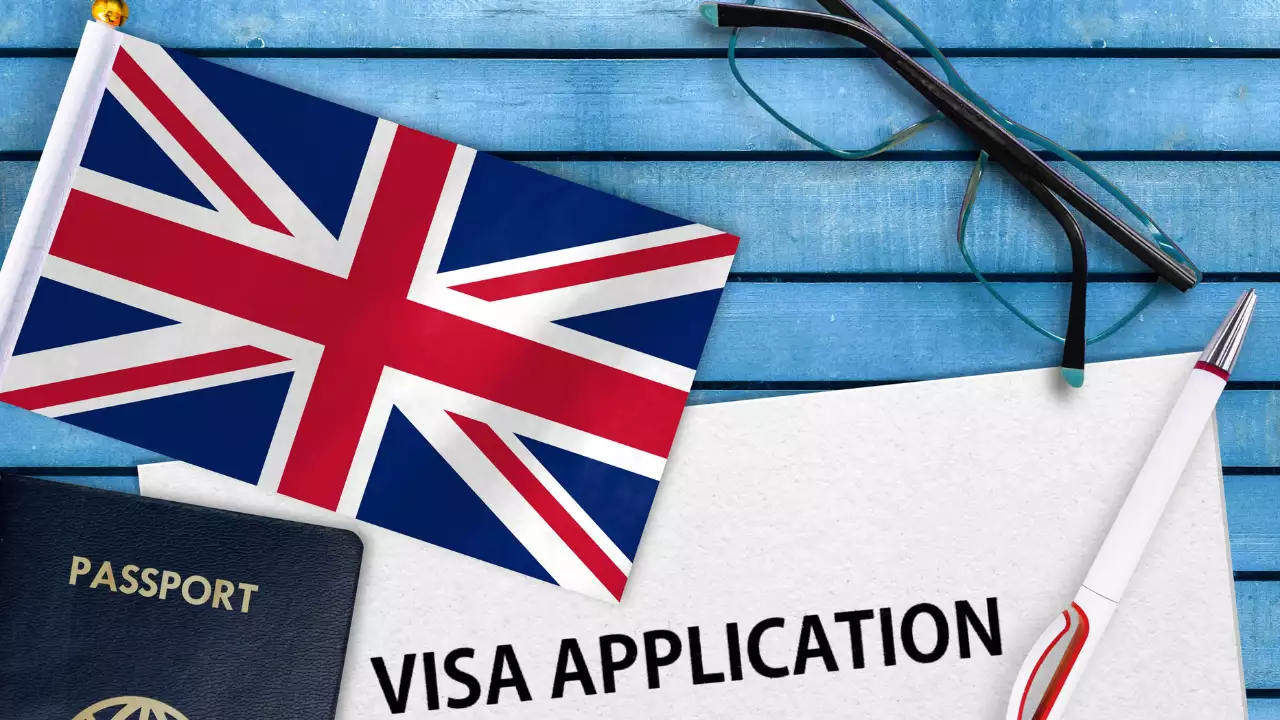The recent announcement made by Home Secretary James Cleverly, which introduces a minimum salary requirement of £38,700 for citizens who wish to bring their non-UK partners to live with them has caused a wave of uncertainty among numerous families and couples.
This strict rule has become a point of debate sparking worries about the practical effects it has on individuals and their plans.
For families, the impact of this income threshold goes beyond financial matters and delves into the core of their relationships and life paths. The minimum salary requirement, particularly when sustained for six months before applying for a UK marriage visa adds another layer of complexity to the intricate process of reuniting families.
The consequences of these regulations are not just felt in terms of finances. Also in terms of the emotional well-being of those impacted.
The sense of uncertainty hovering over these families is evident as they struggle with uncertainties about their stability meeting the requirements and how it might affect their relationships.
The anxiety arising from these rules isn’t just about money; it also raises broader concerns, about family life’s essence planning for tomorrow, and ensuring the security of their shared future.

This change in policy leads to a look at the delicate balance between controlling immigration and the humane side of reuniting families. Families and couples who have overcome obstacles to settle in the UK are now facing a new set of rules that appear to redefine who qualifies and who doesn’t.
As these individuals come to terms with the impact of these regulations there is a growing demand for a thoughtful approach that takes into account the different situations families face across different economic backgrounds.
The potential effects of these regulations are felt not in personal stories but also in wider societal implications questioning the idea of the UK as a friendly and inclusive place, for families looking to create a future together.
In the face of uncertainty, families are left with the daunting task of reassessing their plans, exploring potential adjustments, and, in some cases, contemplating significant sacrifices to meet the imposed financial criteria.
The impact of these regulations extends beyond the immediate applicants, reaching into the heart of communities and echoing through the collective experiences of those navigating the intricate landscape of family life in the UK.
Couples’ Lives in Disarray After New UK Visa Rules

Jessica Mason’s poignant story paints a vivid picture of the challenges her family has faced amid political and economic upheaval, illustrating the profound impact of recent immigration policies on their lives. The family’s journey from Dubai to Sri Lanka, initially conceived as a respite, turned into a struggle against adverse conditions, leading to Jessica’s relocation to Newcastle with their children, Tariq and Layla.
In Sri Lanka, the family confronted severe hardships—power cuts, fuel shortages, and a healthcare crisis that left hospitals devoid of essential supplies. Faced with the harsh reality of their surroundings, Jessica made the difficult decision to move to Newcastle with the children, seeking a safer and more stable environment.
The separation from her husband, Sanas Sahib, was a heart-wrenching chapter in their lives. The family’s attempt to secure an exceptional circumstances visa, initially denied by the Home Office, led to a harrowing period of 10 months during which Sanas remained stranded in Sri Lanka. The eventual reunion, facilitated by a media campaign, marked a triumph over adversity but left an indelible impact on the emotional well-being of the family.
Now, with the announcement of the proposed income threshold, a new threat looms over their hard-fought stability. Sanas, despite being in full-time employment, finds himself falling short of the required earnings. This puts the family in a precarious position, grappling with the prospect of potential separation once again.
The heart-wrenching saga of Tracey Barhan adds yet another layer of complexity to the far-reaching consequences of the new immigration rules. At 47 years old and diagnosed with stage 4 bowel cancer, Tracey faces an uphill battle against a formidable adversary.
Her husband, Kenan, resides in Turkey, creating an emotional and physical distance that now intersects with the formidable challenges posed by the recently implemented income threshold.

For Tracey, the urgency of having Kenan by her side during this critical juncture in her health journey cannot be overstated. As a cancer survivor who has battled this relentless disease three times in seven years, Tracey understands the significance of emotional support and the invaluable solace derived from the presence of loved ones, especially a devoted spouse.
The desire to create lasting memories together, to find strength and solace in each other’s company, is at the core of their shared aspiration.
However, the new rules, with their stringent income requirements, cast a shadow of uncertainty over this already challenging situation. Tracey, who has dedicated her strength to overcoming cancer, now faces a different kind of battle – one against bureaucratic thresholds that seem disconnected from the compassionate nuances of life’s most trying moments.
Shaun McGovern, 28, and her husband, Charles Taylor, 29, residing in Wales, face uncertainty due to Shaun’s part-time employment and Taylor’s fluctuating income as a self-employed delivery driver. The couple, residing in a semi-rural area, highlights the oversight in the government’s consideration of diverse economic circumstances across regions.
Owen Sennitt, 32, and Kelly Robinson, 31, based in Norwich, share their experiences of building a life in the UK over 11 years. The looming threat of the income threshold puts their established life at risk, forcing them to consider selling their home or relocating to the US.
Stephen Michael Oates, 68, a retired business owner, highlights the overlooked impact on older individuals. His wife, Kaemkan, 48, from Thailand, is on a path to permanent residency. Stephen, relying on a private pension, expresses concerns about meeting the income threshold and criticizes the lack of consideration for pensioners in the new rules.
These personal narratives shed light on the multifaceted challenges posed by the revised visa rules, urging a reconsideration of their impact on diverse families, couples, and individuals across different socioeconomic backgrounds and life stages.

